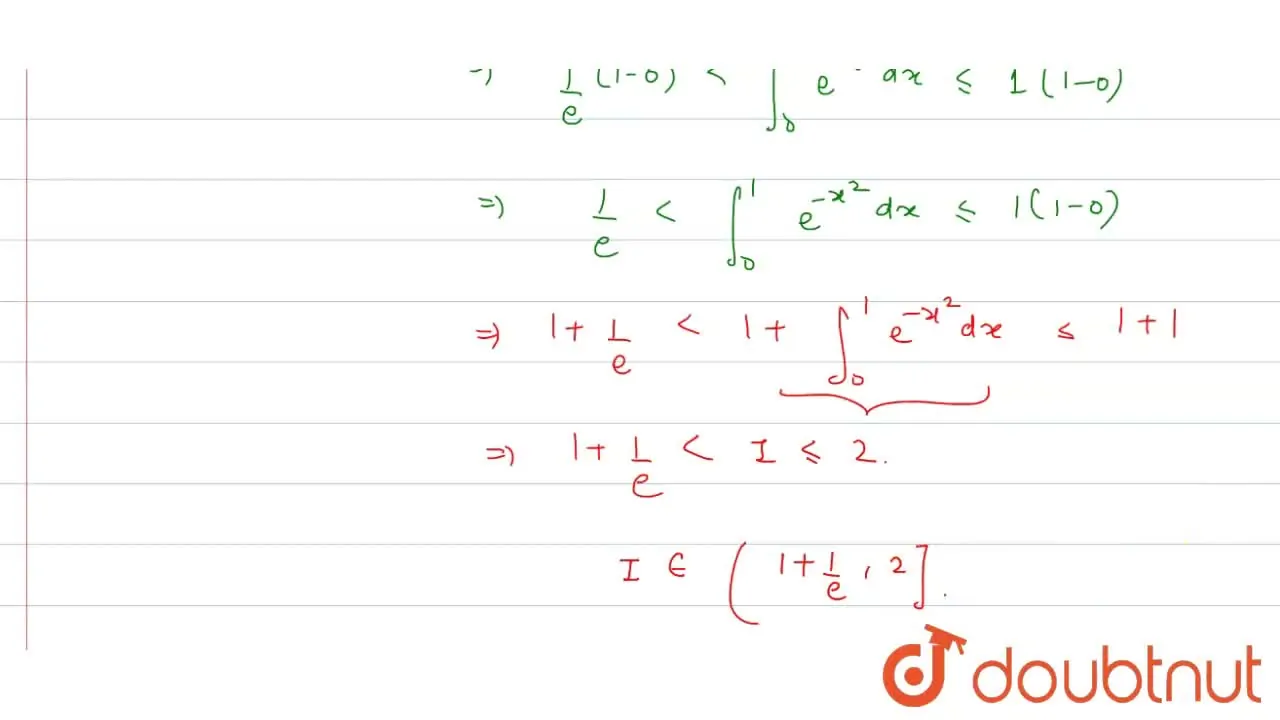If then, s
A
B
C
D
none of these
Video Solution
Text Solution
The correct Answer is:C
We have,
Now,
|
Updated on:21/07/2023
Related Playlists
- BOOK - OBJECTIVE RD SHARMACHAPTER - DEFINITE INTEGRALSEXERCISE - Section II - Assertion Reason Type12videos
DEFINITE INTEGRALS
- BOOK - OBJECTIVE RD SHARMACHAPTER - DEFINITE INTEGRALSEXERCISE - Exercise147videos
DEFINITE INTEGRALS
- BOOK - OBJECTIVE RD SHARMACHAPTER - DEFINITE INTEGRALSEXERCISE - Chapter Test 260videos
DEFINITE INTEGRALS
- BOOK - OBJECTIVE RD SHARMACHAPTER - CONTINUITY AND DIFFERENTIABILITYEXERCISE - Exercise86videos
CONTINUITY AND DIFFERENTIABILITY
- BOOK - OBJECTIVE RD SHARMACHAPTER - DERIVATIVE AS A RATE MEASURER EXERCISE - Exercise26videos
DERIVATIVE AS A RATE MEASURER
Similar Questions
∫10xex2dx
View SolutionIf ∫10e−x2dx=0, then ∫10x2e−x2 dx is equal to
View SolutionIf I=∫1011+xπ/2dxthen
View SolutionI=∫10ex2−xdx then
View Solution∫10xexdx=
View SolutionI=∫10(1+x2−x)dx
View SolutionIf ∫10e−(x2)dx=a, then find the value of ∫10x2e−(x2)dx in terms of a .
View Solution∫101ex+e−xdx
View SolutionIf A=∫10exx+1dx then ∫10x2exx+1dx=
View Solution∫10ex1+e2xdx
View Solution


